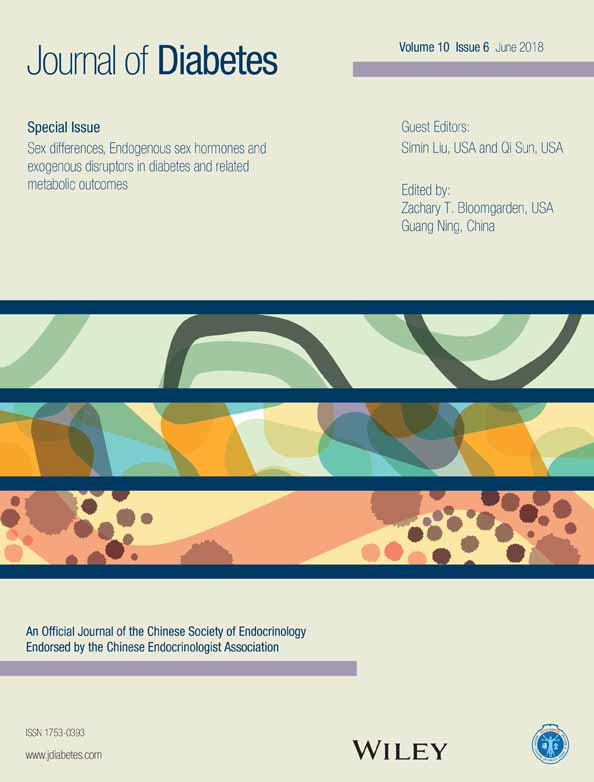Genetic variants in sex hormone pathways and the risk of type 2 diabetes among African American, Hispanic American, and European American postmenopausal women in the US
在非裔美国、西班牙裔美国以及在欧裔美国绝经后妇女中性激素途径的遗传变异与2型糖尿病风险
Abstract
enBackground
Sex hormones are implicated in the development of diabetes. However, whether genetic variations in sex hormone pathways (SHPs) contribute to the risk of type 2 diabetes mellitus (T2DM) remains to be determined. This study investigated associations between genetic variations in all candidate genes in SHPs and T2DM risk among a cohort of women participating in the Women’s Health Initiative (WHI).
Methods
Single nucleotide polymorphisms (SNPs) located within 30 kb upstream and downstream of SHP genes were comprehensively examined in 8180 African American, 3498 Hispanic American, and 3147 European American women in the WHI. In addition, whether significant SNPs would be replicated in independent populations was examined.
Results
After adjusting for age, region, and ancestry estimates and correcting for multiple testing, seven SNPs were significantly associated with the risk of T2DM among Hispanic American women were identified in the progesterone receptor (PGR) gene, with rs948516 showing the greatest significance (odds ratio 0.67; 95% confidence interval 0.57–0.78; P = 8.8 × 10−7; false discovery rate, Q = 7.8 × 10−4). These findings were not replicated in other ethnic groups in the WHI or in sex-combined analyses in replication studies.
Conclusion
Significant signals were identified implicating the PGR gene in T2DM development in Hispanic American women in the WHI, which are consistent with genome-wide association studies findings linking PGR to glucose homeostasis. Nevertheless, the PGR SNPs–T2DM association was not statistically significant in other ethnic populations. Further studies, especially sex-specific analyses, are needed to confirm the findings and clarify the role of SHPs in T2DM.
摘要
zh背景
性激素与糖尿病的发生具有相关性。然而, 目前尚未明确性激素途径(sex hormone pathways, SHPs)的遗传变异是否有导致2型糖尿病的风险。这项研究在参与妇女健康倡议(Women’s Health Initiative, WHI)项目的妇女队列中调查了所有的SHPs候选基因遗传变异与2型糖尿病风险之间的关系。
方法
在参与WHI研究的8180名非裔美国妇女、3498西班牙裔美国妇女以及3147名欧裔美国妇女中全面分析了SHP基因上游以及下游30 kb内的单核苷酸多态性(Single nucleotide polymorphisms, SNPs)。另外, 还在独立的人群中分析显著相关的SNPs是否具有可重复性。
结果
经过年龄、区域、血统评估以及多重测试校正之后, 在西班牙裔美国妇女的孕酮受体(progesterone receptor, PGR)基因中鉴定出了7个与2型糖尿病风险显著相关的SNPs, 并且发现rs948516的相关性最为显著(危险比为0.67;95%置信区间为0.57-0.78;P = 8.8×10−7;错误发现率, Q = 7.8×10−4)。在WHI研究的其他种族分组中以及在独立重复人群的性别组合分析中都没能重复证实这些研究结果。
结论
在参与WHI研究的西班牙裔美国妇女的PGR基因中鉴定出了与2型糖尿病的发生显著相关的信号, 这与全基因组关联研究结果相一致, 亦即PGR与血糖稳态具有相关性。然而, PGR SNPs与2型糖尿病之间的相关性在其他种族人群中却没有显著性的统计学意义。为了证实这个研究结果并且阐明SHPs在2型糖尿病中的作用, 需要进行进一步的研究, 尤其是要进行性别特异性分析。




